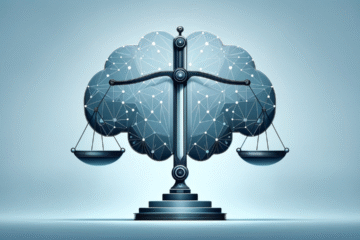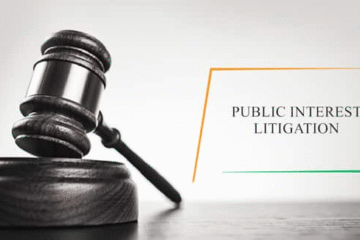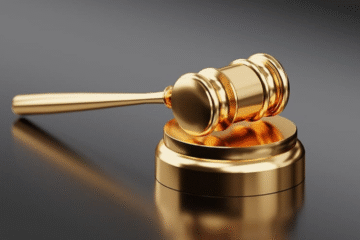
Fundamental Rights are deemed important to protect the rights and liberties of the people against the encroachment of the power delegated by them to their Government. There are limitations upon all the powers of the Government, legislative as well as executive and they are important for the preservation of public and private rights. Fundamental rights existed since the time our present Constitution has existed i.e. 26th January 1950, Fundamental rights become operative from and only on this date.
In the historic judgment of Maneka Gandhi v. Union of India observed “These Fundamental rights represent the basis values admire by the people of our country since the Vedic times and they are there to protect the dignity of the individual and create conditions in which every human can develop his personality to fullest extent”.
When we were making our Constitution, we already has a lot of nationas example, which adopted Democratic and Humanitarian concept.
So, our founding father endeavoured to formulate something which reflects multiple things live Rights for independence and what not. Therefore, while making the Constitution part 3rd was discussed for 38days.
Part 3rd exists with the some objectives that our Rights and freedoms should be protected against state’s arbitrary invasion. So this means that state’s actions should be judged on the basis of their impact on the Rights and freedom of the people. And this entire concept is your Article 13. Basically Article 13 deals with 4 principles relating to Fundamental rights.
ARTICLE 13(1) Deals with Pre- Constitutional law
There were many different laws that were present before Constitution came into force and remained in effect even after that. Article13 provides that those laws (existing prior to constitution) which are consistent with Fundamental right will remain valid and which are not will became void.
For Example, that there was an Education act of 1930, which had many clauses dealt with subjects like appointment of chairmen, amount of fund, age group among these there was this one clause states a particular caste shall not be allow in the school. So, by applying article 13(1) to it we can say that this clause is inconsistent with the Fundamental rights, same would be void.
To make concept more clear there are two Doctrines under Article 13(1):
(1) Doctrine of Severability or Doctrine of Separability, which means to Separate.
In simple language, you have to use a filter for all pre-constitutional laws, i.e if itrespects Fundamental Rights or not. All the laws which pass successfully through this filter, the laws which cannot pass has to be separated.
Important case for this Doctrine is AK Gopalan v/s State of Madras AIR 195, in this case Section 14 of Preventive detention Act was challenged. According to this section, if any person is detained under this Act, he cannot disclose grounds of his detention in court. So, Section 14 was against the Fundamental right. If you apply Doctrine of severability here and filter out the act , only Section 14 of the act was not respecting Fundamental rights and only Section 14 is inconsistent with the Fundamental right. So we will minus only this provision from this act, ant the remaining act will be valid. So, doctrine of severability is all about filter the pre-constitutional Act to check its consistency with Fundamental right.
(2) Doctrine of Eclipse, which means to hide: Eclipse means to shadow something, to hide, Section 14 of Preventive Detention Act of previous case was not a dead section but just a sleeping section.
To understand the functioning of this Doctrine lets see this case of Bhikaj v/s State of MP, In this case Berar motor vehicle was challenged.
There were certain section in this act which empowered the state govt. to transfer the ownership of all the motor business to itself (understate govt.). After 1950, all those provisions become violate of Article 19.
So now what will happened is, we will filter out the whole Act first and remove all those section which are inconsistent with Fundamental Rights. Then we will apply doctrine of eclipse, we will say that Fundamental Rights will prevail over these section, this means all these section become incorporated.
– What happened next is that Article 19(6) was amended and govt. was authorized to monopolised. So, these sections which were inoperative because of Section 19, will now become active.
So, Article 13(1) deals with pre-constitutional law meaning the law which existed before 1950 i.e constitution, if such laws are against Fundamental Rights, they shall remain invalid shall be determined by application of two doctrine i.e Doctrine of Severability and Doctrine of Eclipse.
ARTICLE 13(2) Talks about post Constitutional laws
Means, the laws that came into existence after Constitution, The state is prohibited, the state cannot make such law which are against the Fundamental Rights. If such inconsistent laws are made they shall be void.
To what extent they would be void, shall be defined by application of same two doctrine i.e Doctrine of Severability and Doctrine of Eclipse.
There were a lot of twists in Article 13(2) which were all settled in State of Gujarat v/s Ambica Mills labour welfare fund (respondent)
In this case, a certain Labour welfare fund was challenged, section which are against the Fundamental Rights. Now, it was clear that after Constitution came into force, state did not have power to pass any law which is against Fundamental Rights. Here question arises that, fundamental rights are available to citizens.
In this case, the respondent was a company, who was not granted the fundamental rights, In respect of that, would this act be valid or not? The Supreme Court said because the fundamental rights are not granted to companies, these sections will still, be operative for non-citizens.
So, Article 13(2)- basically 1st state is prohibited from making any laws which are against the fundamental rights. 2nd, even if such a law is made , it shall not be applicable on the citizens. But all those categories of parties which have not been granted fundamental rights like, comparies non citizens , for them , that piece of legislation is still operative
ARTICLE 13(3) Meaning of law and law in force
Here Article 13(3) discuss these both the term i.e law and law in force, clears that all the laws which can affect the legal rights of a citizen will comes under Article 13. So, by laws, ordinances, notification, regulations all these will cover under Article 13. However, the two exception to it are:
- Administration direction/ instruction for guidance and not meant as enforceable legal obligation.
- Personal laws are not included within Article 13. So, here comes the tricky part of Article 13, Article 13(2) ensures that state cannot make any law against the Fundamental Rights and Article 13(3) stated what comes under law.
So, let’s take an example, thought a amendment, a provisions is added to an Act and on provision is modify under that Act. Both the provision which are amended are against the Fundamental Rights.
Now, question arises, whether a Amendment of the Constitution amounts to ‘law’ under Article 13(2). Now, this question seems easy but as you dig deeper, this question really means that who is supreme Judiciary or Parliament?
- In Shankar Prasad v/s Union of India AIR1951 SC458 In this case SC said that the meaning of law under Article 13 does not includes a Constitutional Amendment, so according to this Amendment can’t be challenged under Article 13.
- Golaknath v/s State of Punjab AIR1967 SC1643 in this Supreme court said that the power of Judicial review is Supreme, even Amendments can be challenged under Article 12, here can be challenged. After Golaknath case the power of judicial was substantially increased.
- So, then there comes a 24th Constitutional amendment act 1971, This amendment inserted Article 13(4), this clause state that any amendment is done by exercising Article 368 that will not be challenged under Article 13.
- Then the final event was of Kesavananda Bharti v/s State of Kerela AIR 1973, In this case it was said, that Amendment can’t be challenged under Article 13
So, this brings us to our final clause,
ARTICLE 13(4), this clause simply state that, any Amendment done through Article 368, then it can’t be challenged under Article 13, if Amendment is against to the Fundamental Rights, then also it cannot be challenged under Article 13.
REFRENCES
Finology Legal (YOUTUBE)




0 Comments